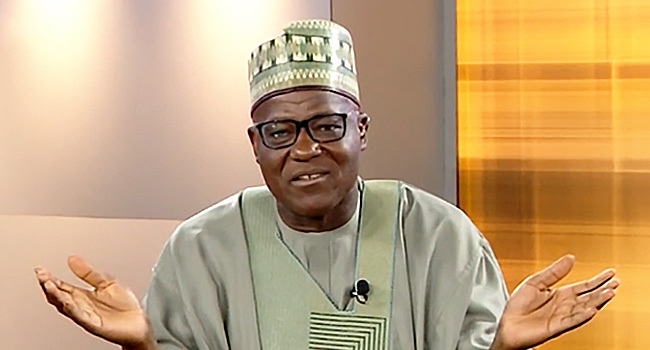Nigeria
Many Government Officials Willing to Serve Without Pay – Dogara

Former Speaker Yakubu Dogara reveals that numerous government officials are prepared to serve without receiving a salary. Find out more about this statement and its implications for public service in Nigeria.
A former Speaker of the House of Representatives, Yakubu Dogara, asserts that contrary to widespread public perception, a significant number of politicians in Nigeria are not motivated by financial gain while in government.
During his appearance on Channels Television’s Sunrise Daily programme on Friday, Dogara expressed that many government officials would be willing to serve without compensation if public expectations were moderated to a reasonable level.
“If we could reduce the demands placed on some of these government officials by 90 percent, I can assure you that numerous individuals would be prepared to work pro bono,” Dogara stated during the broadcast.
“However, the challenge lies in the fact that one cannot impose excessive burdens while simultaneously undermining the very foundation that supports those responsibilities.”
Regarding the prevailing issues of hardship and hunger in the nation, Dogara mentioned that President Bola Tinubu recognized these challenges during a recent meeting with former national assembly leaders at Aso Rock.
The former Speaker indicated that President Tinubu assured them of his commitment to addressing the issues of hunger and hardship affecting the populace.
READ ALSO: Muslim-Muslim Ticket: Dogara receives forgiveness from Tinubu, reveals APC Chieftain
Tinubu is not responsible for the removal of the petrol subsidy. Many have attributed the surge in inflation and the subsequent rise in commodity prices to this action, yet Dogara contends that Tinubu should not be held accountable, as the subsidy was not included in the budget prior to his election.
“We must acknowledge, regardless of our opinions, that the subsidy was already eliminated before the president took office, whether he explicitly stated its removal or not.
“It was absent from the budget, and without a budgetary provision, it is impossible to allocate funds legally. The executive can only allocate funds with explicit legislative authorization, which is provided through the budget. In this instance, there was no such provision,” he explained.
He emphasized that the crucial aspect is the president’s recognition of the challenges he faces, noting that taking responsibility for an issue is the first step toward finding a resolution.
